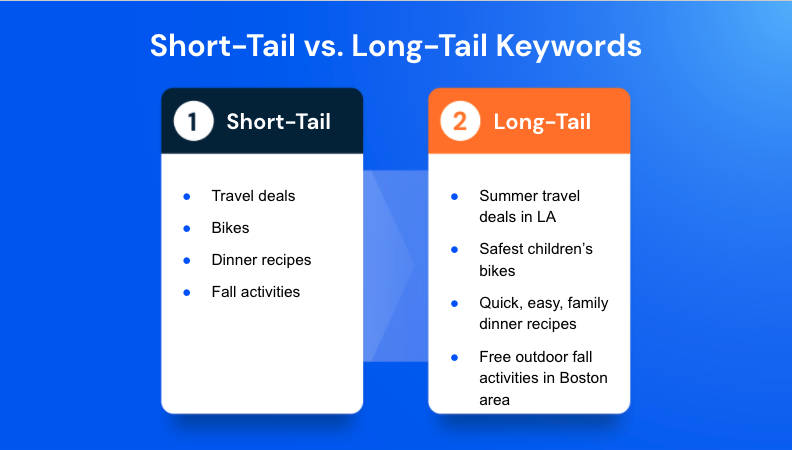SIn the ever-evolving landscape of SEO (Search Engine Optimization), a crucial strategy often overlooked is the utilization of long-tail keywords. These specific and extended keyword phrases, typically comprising three or more words, may not have the flashy allure of high-search-volume, broad keywords, but they hold a unique and enduring value. In this comprehensive guide, we will delve deep into the realm of long-tail keywords: defining their essence, exploring their pivotal role in SEO, and uncovering the methods to unearth and leverage their potent potential.
Demystifying Long-Tail Keywords
Long-tail keywords, at their core, are keyword phrases meticulously crafted to address precise user queries. These queries are often highly specific, reflecting the searcher’s clear intent. Contrasting starkly with their more generic counterparts, long-tail keywords embrace a niche-focused approach. These keywords may not generate the vast search volumes that broader terms do, but they wield a superpower that makes them indispensable: relevance.
The Strategic Role of Long-Tail Keywords in SEO
- Enhanced Relevance:
- Long-tail keywords are intrinsically tied to user intent. When users employ these specific phrases, they are on a quest for detailed information, specific products, or tailored solutions. By seamlessly integrating long-tail keywords into your content, you not only cater to this intent but also heighten the overall relevance of your content.
- Reduced Competition:
- With precision comes a competitive advantage. Long-tail keywords are less fiercely contested than their broader counterparts. This opens doors for businesses and content creators seeking to establish their digital presence in niches with lower competition.
- Higher Conversion Rates:
- Users who venture into the realm of long-tail keywords are often farther along in their buyer’s journey. They come armed with a clear understanding of what they seek. Therefore, when your content directly addresses their nuanced queries, it significantly elevates the probability of conversions, whether it be a product purchase, a newsletter sign-up, or active engagement with your content.

Discovering and Leveraging Long-Tail Keywords
- Keyword Research Tools:
- Begin your quest for long-tail keywords with the aid of keyword research tools like Google Keyword Planner, SEMrush, Ahrefs, or Moz Keyword Explorer. These tools unearth a plethora of potential long-tail gems. Look for keywords with moderate search volume and manageable competition.
- Google Autocomplete and Related Searches:
- Harness the power of Google itself. Start typing a seed keyword into the search bar, and Google’s autocomplete feature will unveil a selection of long-tail variations. Additionally, scroll to the bottom of the search results page to uncover related searches that can serve as fertile ground for long-tail keyword inspiration.
- Competitor Analysis:
- Investigate the content strategies of your competitors. Identify the long-tail keywords they have successfully targeted and are ranking for. Tools like SEMrush can provide valuable insights into your competitors’ keyword tactics. Tailor your content around similar long-tail keywords while adding your unique perspective and value.
- User-Generated Content and Q&A Platforms:
- Venture into online forums, Q&A websites such as Quora, and social media platforms where users engage in discussions and pose specific questions. These platforms often harbor a treasure trove of long-tail keyword opportunities.
- Content Optimization and User Intent:
- Once you’ve curated a list of relevant long-tail keywords, the next crucial step is their seamless integration into your content. However, don’t merely focus on keyword stuffing; instead, ensure that your content thoroughly addresses the user’s query, offering valuable information, solutions, or insights.
In conclusion, while long-tail keywords may not always steal the limelight in the SEO realm, they are the dependable workhorses that drive highly targeted traffic and conversions. Recognizing their intrinsic value and strategically weaving them into your content empowers you to tap into niche audiences, minimize competition, and ultimately supercharge your SEO efforts. In the ever-shifting digital landscape, it’s often the precision and specificity of long-tail keywords that steer you towards triumph in the competitive SEO arena.


